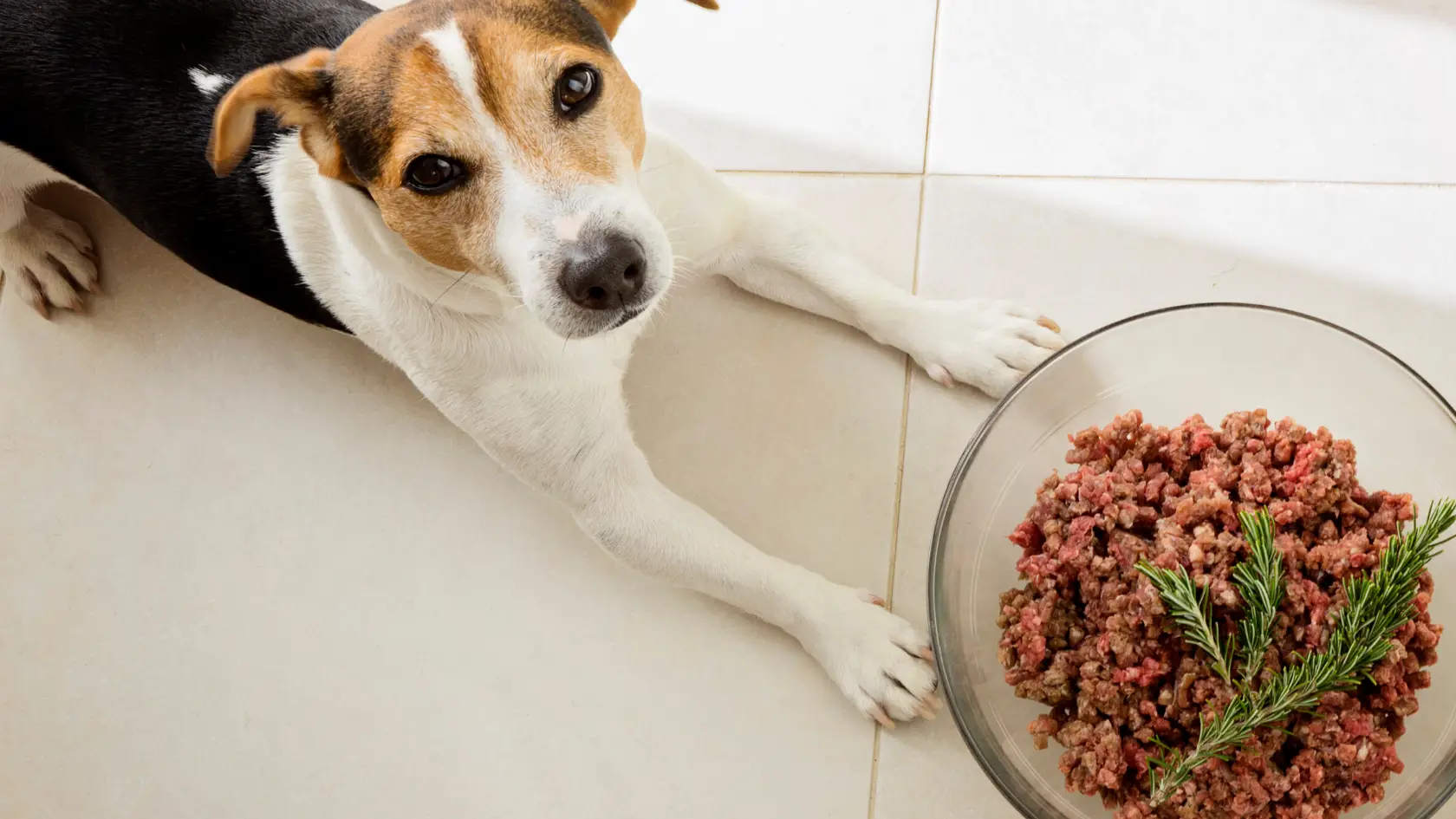Raw Food Diets (RFDs) have grown in popularity with many pet owners in recent years but they continue to remain fairly controversial . Many pet owners want to do what they feel is right in feeding their dogs foods that more closely resemble how they would have eaten in the wild.
However many veterinarians and government agencies such as the CDC and FDA are asking pet owners to consider not giving raw food and BARF diets to their fur babies and below are the four main reasons why.
Nutritional Deficiencies

If you are only feeding a diet of raw meat, you may not be providing a complete and balanced nutritious meal for your fur baby. Your dog or cat will require other foods and supplements to have a complete and healthy diet. This is especially true of growing puppies and senior dogs that may have special needs.
This means that a raw food diet may increase your pets risk of nutritional deficiencies if not properly monitored. Of course there are commercially prepared raw food diets, but you also have to read the packaging to ensure your pet is receiving all the benefits they need.
Improper Digestion

It has been said that properly cooking meat and carbohydrates can make foods more digestible for your pet and therefore more accessible to the body.
In an article from Purina, it was stated that when foods are easily digested, “dogs can use more of the nutrients more effectively for producing energy, building muscles and supporting their immune systems.”
It has been noted that raw meat digest slower than kibble meals but this may prove to be beneficial in the long run per some studies as it gives more time for nutrients to be released. More studies are needed to find out the pros and cons as far as digestion is concerned.
Foodborne illnesses

Cooking meat kills off harmful bacteria and by feeding uncooked meat, there is an increased risk of your dog will developing a foodborne illness or other type of bacterial infection.
In a study conducted in the Netherlands analysis of raw meats showed an increase in pathogenic bacteria such as Escherichia coli, Listeria monocytogenes, Brucella suis and Salmonella. Here is a link to the study
Also, in an analysis of 35 commercial raw dog and cat foods, researchers found that 86% of products contained potentially dangerous bacteria.
Your Health

Even if your pet acquires pathogenic bacteria and doesn’t get sick, they can be carriers and subsequent shedders of these pathogens.
With the constant handling of raw food, there is also an increased risk you or a member of your family can come into contact with the bacteria and develop a foodborne illness.
If you do decide to feed your pet raw food make sure that you properly handle the meat, don’t allow your pet to lick your face and clean up feces immediately. The Center for Disease Control & Prevention has a great fact sheet on preparing raw food for your pet if this is what you choose to do.
Endoparasites

If the threat of pathogenic bacteria doesn’t make you think twice about feeding a raw diet, then the thought of other parasites, like worms, should.
If a piece of meat is infected with worms or eggs they can be fairly difficult to detect and easy to pass on to your pets. Pet foods and treats that include raw meat, organs or meaty bones have been found to include parasites such as Toxoplasma and tapeworms
Of course as a pet owner that wants the absolute best for their fur baby it is up to you to determine what foods they eat and ultimately the choice is yours.
We do urge you to speak with your veterinarian prior to choosing a RFD for your dog and make sure to research thoroughly so that you can make an informed decision!


























































































































Oh my goodness! an amazing article dude. Thanks Nevertheless I’m experiencing subject with ur rss . Don’t know why Unable to subscribe to it. Is there anybody getting identical rss drawback? Anyone who knows kindly respond. Thnkx